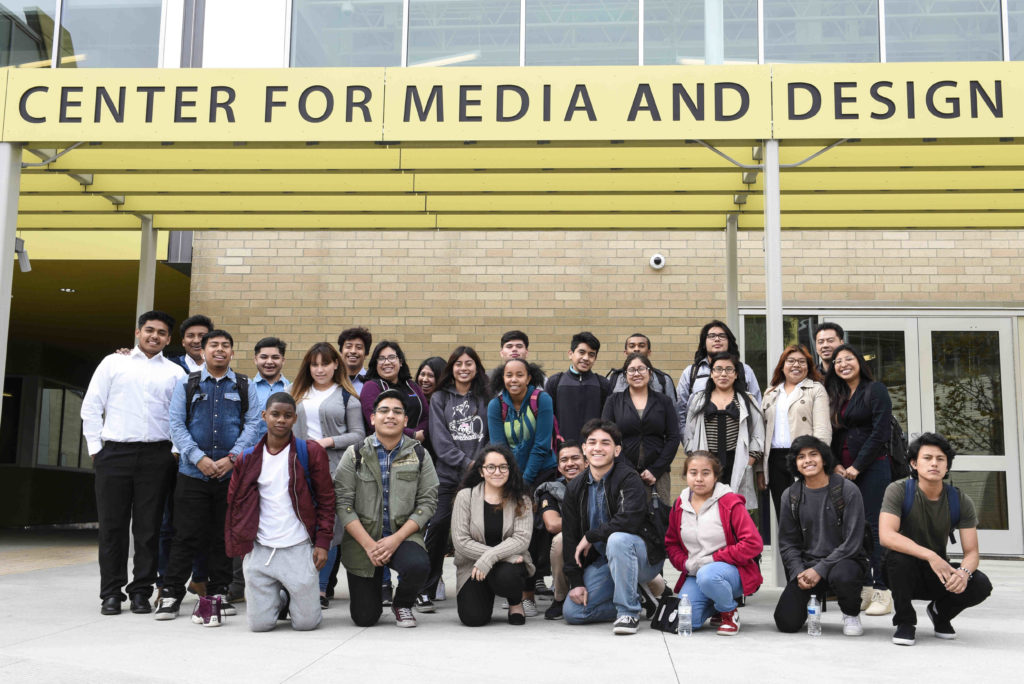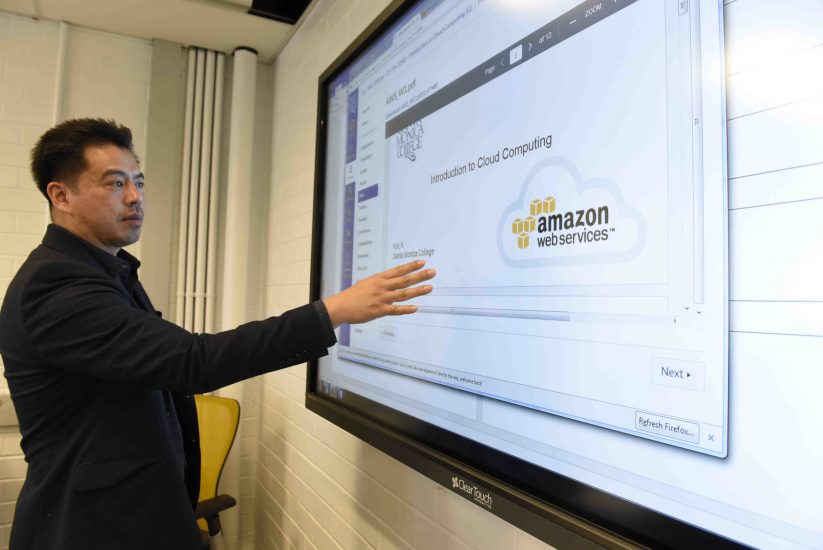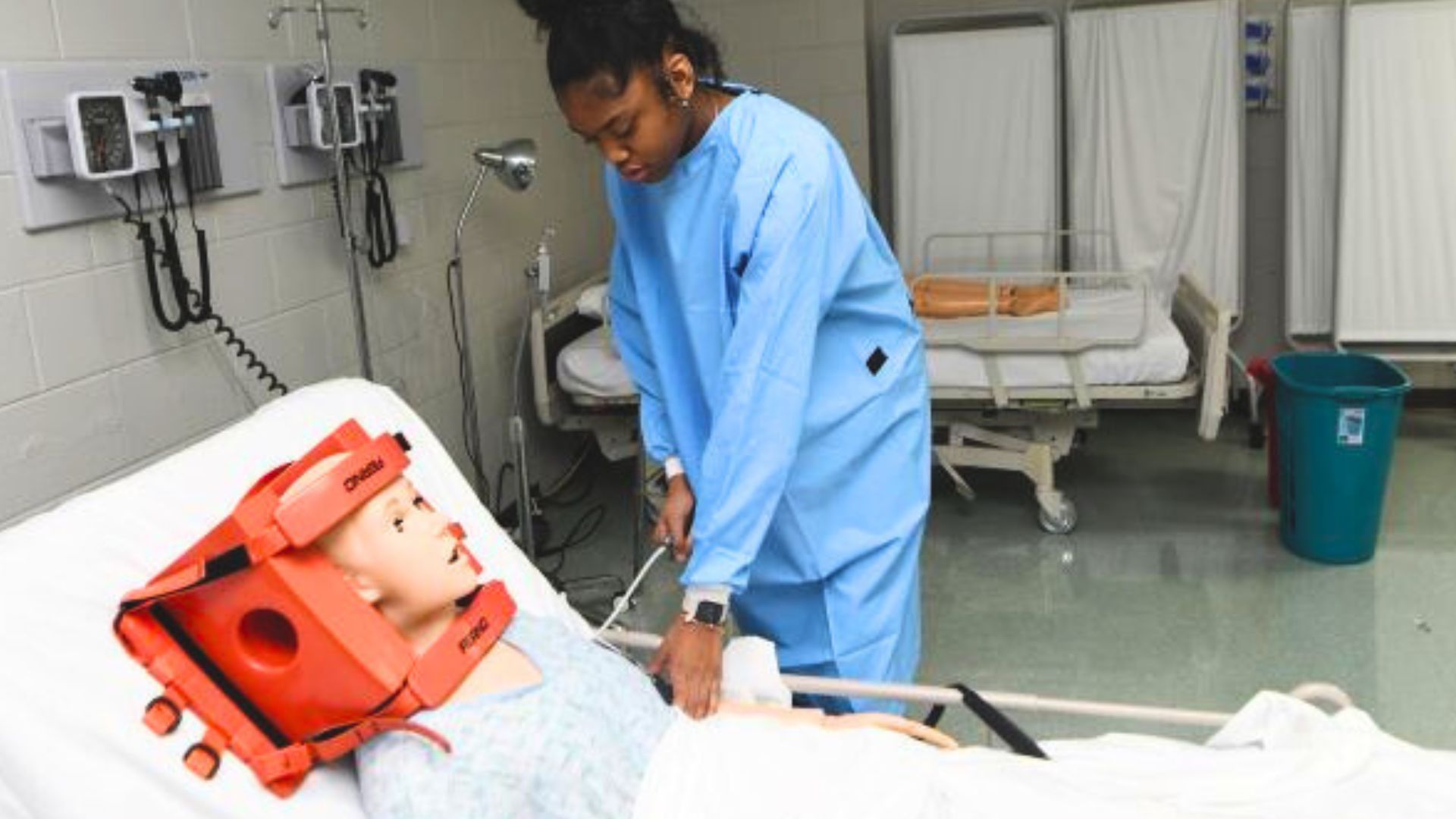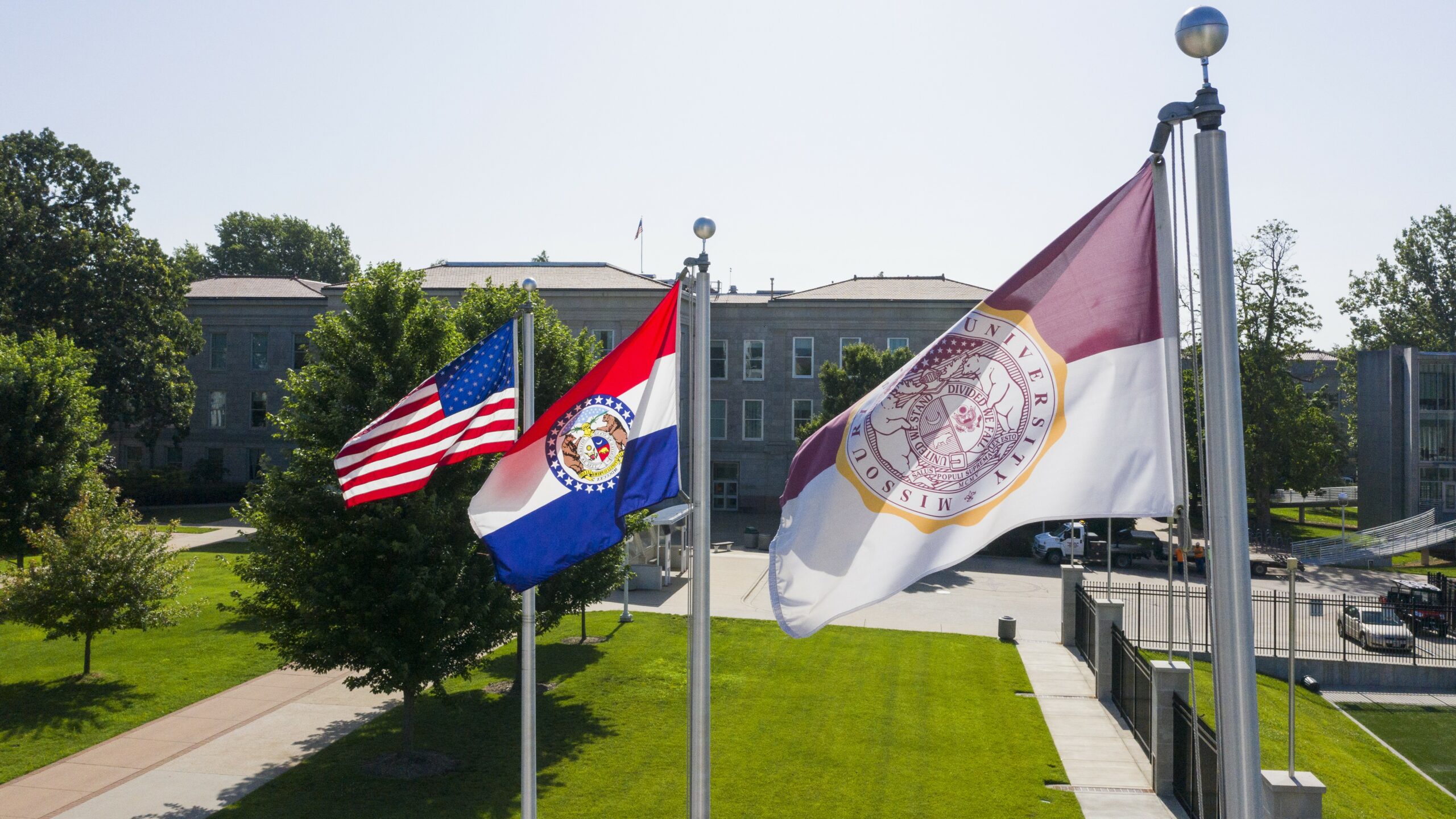For the past three years, LinkedIn has identified cloud computing as the number one in-demand global skill. Now, in a first-of-its-kind program, 19 community colleges in the Los Angeles area are offering a regionally-recognized curriculum and certificate in the high-wage career. And they are doing it with one of the leaders in the field: Amazon Web Services (AWS).
You’ve probably heard of the cloud, and maybe even store your photos or documents in one. It’s an off-site high-capacity server that allows companies of any size to save their data remotely, negating the necessity of buying an expensive on-site server of their own. More businesses are embracing that option, which means more trained experts are needed.
Jobs requiring training in AWS cloud computing have increased by 177 percent in the past four years. There are now about 2,000 annual job openings in the region, and that number is expected to grow, according to the California Cloud Workforce Consortia (CA Cloud), as the coalition of the 19 community colleges and their partner high schools are known.
This high demand for skilled workers led to this new approach. It’s the first time AWS has collaborated with a group of community colleges to offer training and a certificate in the field. Working closely with AWS over four years, Santa Monica College (SMC), part of the CA Cloud, created the curriculum now being taught at the 19 schools. In just 15 units, the program provides industry-standard skills including application development, database management, cloud security and hardware and software system requirements. SMC rolled out the first class this summer at its Center for Media and Design, and it sold out overnight.
Twenty-three-year-old Michael Brown tried to start his own business before returning to Santa Monica College to get an associate’s degree. He was already interested in computer science when he heard about the AWS program.
“I am definitely heavily leveraged in the certificate program,” Brown tells me. “I’ve even completely rearranged my scheduled just to finish it this fall. Cloud computing is such a new industry that if I get into it now, I’ll be ahead of a lot of other people who want to be employed in that field later on.”
After getting the certification, he plans to transfer to a four-year university to continue his education.
One of Brown’s classmates already had a four-year degree in engineering when she signed up for the course. He says she decided to take the course to learn a specific skill set she didn’t learn in college because it didn’t even exist when she was in school getting her degree. Other students taking the summer course were still in high school.

“I had to take a computer class for my tech credits to graduate,” says 16-year-old Claire Thibodeaux of Palisades Charter High. “I obviously knew that the cloud is where you store your photos, but I didn’t really know the whole definition of it going in. We had to set up different servers using different operating systems, including Linux. That was really new because I actually never had an operating system where I had to type everything.”
Thibodeaux has not settled on a career path yet but tells me she feels like what she could learn in the cloud computing program could be useful no matter what direction she chooses. “Technology is just becoming a major aspect of every single career,” she says.
“Before I took the class, I wasn’t really sure if I wanted to do anything in cloud computing,” says Derek Wen, 17, who is a senior at Santa Monica High School. “I thought it was more of like a useful skill that would probably help me. After taking the introduction class, I really like cloud computing. I think I understood the concepts pretty well and I would like to take more classes at Santa Monica College to continue this program.”
Wen believes that the program will be beneficial no matter what job he ends up doing. “Since most jobs right now already require using computers, I feel that as more companies begin shifting over to the cloud, you probably need to understand the basics of cloud computing just as you need to understand the basics of computers today to do most jobs,” says Wen.

The demand has been so great for workers with cloud computing skills in the Los Angeles area, one school couldn’t fill the need and one stakeholder couldn’t fund it. Many parts of the community joined together to bring this certification program to life — academia, government, and business. While Santa Monica College developed and offered the first classes, funding from a state grant and those other partners allowed the program to be expanded.
“The reality is that business and industry don’t want to partner with one college, one-off, says Santa Monica College Dean Patricia Ramos. “All companies want the opportunity to reach more colleges and hope that colleges have similar curriculums. The reason we’re able to scale up is because we already had the curriculum, we had the funding, and we had the opportunity to partner with AWS and each other,” explains Ramos.
“Our talent development systems were configured for an industrial age economy. As we transition to an economy where IP and knowledge are now the primary factors that means that we have to recalibrate our systems to support where this economy is going,” says David Flaks, president and chief operating officer for the Los Angeles County Economic Development Corporation (LAEDC). “It’s becoming a lifeblood issue — not only for the community college system but also industries as skills get more specialized — for them to effectuate these types of partnerships.”
The Center for a Competitive Workforce, whose mission it is to support industry-informed education and workforce programs and curricula across Los Angeles and Orange counties, is one of those many collaborators on this particular program. Housed at LAEDC, it is funded by the California state’s Strong Workforce Program and represents a co-investment by the 19 community colleges themselves.
RELATED STORY: LAEDC releases its inaugural report on workforce development
“The Center will serve as that regional clearinghouse, if you will, almost a center of innovation for all our different talent development systems. It shows they can create the requisite programs curricula, stackable certificates, etc., that will be reflective of what industry actually demands from our talent development pipelines,” explains Flaks.
“We’re excited to see this level of collaboration at a regional level, bringing essential IT education and skills to a growing workforce to meet the demand for tech-focused jobs in L.A.,” says Andrew Ko, Director of Global Education at AWS. AWS Educate is also sharing the CA Cloud curriculum as a model for other institutions, educators and workforce development groups around the world who are interested in growing the number of people with much-needed cloud computing skills in their communities.
For the enrolled students, once they complete the certification process, they also get a leg up looking for work. They’re given access to the AWS Educate Job Board, created to match people who have graduated with the needed cloud computing skills with companies, including Amazon, looking for workers. They also get access to additional training and other micro-certifications through AWS Educate.
“We had a professional come in to talk about how AWS launches a thousand different new services each year,” says student Wen. “For the Amazon Certified Cloud Practitioner test, I believe you have to re-take it every few years. There’s definitely going be new technology, better versions of cloud computing, so you have to always be learning how to do the new thing. It is definitely is a lifetime learning experience.”
Join the Conversation: What do you think about the burgeoning partnerships between community colleges and tech companies to create high-tech workers? Have your say on our Facebook page.











